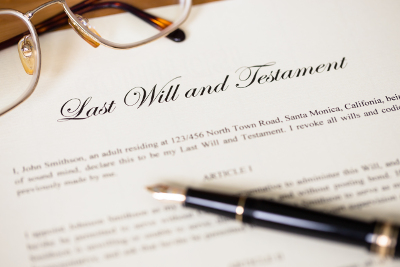 Estate planning is an area of law that requires a lot of careful thought. There are many important matters to address when writing a Will, and a mistake could lead to a dispute arising at a later date. To help ensure your wishes are fully carried out and your estate is administered in the way you want after your death, here are six crucial things to consider when constructing your Will.
Estate planning is an area of law that requires a lot of careful thought. There are many important matters to address when writing a Will, and a mistake could lead to a dispute arising at a later date. To help ensure your wishes are fully carried out and your estate is administered in the way you want after your death, here are six crucial things to consider when constructing your Will.
1 – Make sure you use an experienced Wills solicitor. Don’t be tempted by the cheap “DIY” Wills you see online or in bookshops – you could end up inadvertently disinheriting loved ones because of some ambiguous wording or causing unnecessary complications for your family after you’ve gone.
2 – Choose your Executors wisely. Often, parents will choose their adult children who have been estranged from each other or have had a turbulent relationship for many years. This is done in the hope that it will bring the siblings closer together as they deal with their parent’s estate. However, this is rarely the case and often causes a great many difficulties and additional expense and delays for the executors and beneficiaries. Make sure your chosen executors know what is expected of them and that they are willing to act as executor. It is better to choose two executors, rather than one, just in case anything incapacitates the sole executor.
3 – If you wish to leave one adult child less than another, make sure you set out your reasons in a Letter of Wishes, which should explain why you have divided your estate this way. While you have testamentary freedom, there is nothing to stop someone from attempting to redress the balance by seeking a claim under the Inheritance (Provision for Family and Dependants) Act 1975 after you have gone. To help discourage them from doing so, you could consider adding in a “no-contest” clause stating that the gift will be forfeited if the beneficiary challenges the Will. Although a no-contest clause isn’t legally binding, it may cause the beneficiary to reconsider their actions before making a legal challenge.
4 — Seek legal advice on how to minimise the amount of Inheritance Tax that will be payable on your death and organise your finances and Will accordingly. Careful advance IHT planning could potentially save your family from paying large sums to the taxman unnecessarily.
5 – If you have dependent children, then you could consider naming a guardian in your Will, who would raise the children after your death. If you are the last living parent and you die before your children reach 18 years of age, a court-appointed guardian will take care of your children, and this may not be the person you would have chosen. Appointing a guardian in your Will makes sure that the person of your choice looks after your children after you die.
6 – And finally, once you have made your Will and it has been witnessed, it is a good idea to store it safely and let others know where it is kept. Please do not store it in a safety deposit box, as the bank will not release the key to the box until after probate has been granted and the original Will is required for the Grant of Probate application. If you can, keep all your relevant paperwork together — house deeds, shares certificates, bank account details, insurance policies, etc. You can find a comprehensive list of the ten most important documents an executor will need to find here. Keeping everything together and letting your executors know where the documents are will save your family a lot of delays and stress after you’ve gone.
If you would like to receive further guidance on writing a Will, consider contacting an Oratto member lawyer specialising in Wills today.
Contact Oratto on 0845 3883765 to speak with an adviser or use our contact form to arrange a call-back.
Click here to return to the main Wills area.